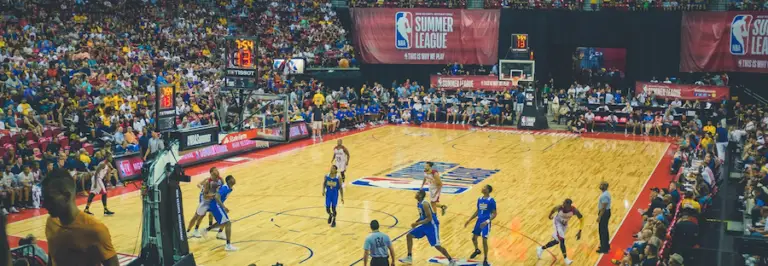New York Sports Betting Licensees: Winners And Losers

After passing sports betting legislation, New York was tasked with selecting at least two sports betting platform providers and four operators from the six sports betting proposals the state received.
Last week, New York selected two of the six proposals, which will result in the state satisfying the two-platform requirement, and easily exceeding the four-operator minimum, as the two winning bids have a combined nine operators. Based on the state’s tax matrix, New York’s mobile sports betting operators will pay a tax of 51%.
The winning proposals are:
- FanDuel along with BallyBet, BetMGM, DraftKings Sportsbook.
- Kambi along with Caesars Sportsbook, PointsBet, Resorts World, Rush Street Interactive, WynnBET.
The proposals that didn’t make the cut were:
- Kambi with Barstool Sportsbook and Fanatics Sportsbook
- bet365
- FOX Bet
- theScore Bet
It would be easy to call the selected proposals the winners and, conversely, the submissions that didn’t make the cut as the losers, but some winners and losers stand out from the crowd. In this column, I’ll discuss seven of these standouts, four winners, and three losers.
Winner: New York
New York is poised to be the largest legal sports betting market in the US, and the state is set to receive a bawdy 51% tax rate from its mobile sports betting operators.
It’s important to keep in mind that NY sports betting will never be a budget panacea (even as a billion-dollar-plus market, with an annual budget of nearly $100 billion, sports betting will account for about .3% of the state’s annual budget). Still, unlike some other states’ operator-friendly burdens, the Empire State maximized its earning potential.
Winner: Other Major Market States
California and Texas are still sitting on the sidelines of the US sports betting boom. After seeing what operators are willing to pay for a slice of the New York pie, both states (expected to be larger markets than New York) are more likely to push the licensing fee and tax rate envelopes.
In that sense, New York is similar to Pennsylvania in that it demonstrates what operators are willing to pay.
Winner: New York Sports Teams
When leagues had their hands out to cash in on sports betting (calling for integrity fees and league data mandates), the industry made it clear that the clubs would benefit whether they were expressly involved or not. The increased value of the franchises would accomplish that, and we certainly see that in New York.
As the Earnings+More Newsletter put it:
Other winners are New York’s sports team, including the Knicks and the Rangers and owner Madison Square Garden Entertainment. Jonathan Byer, president at Boyer Research, said that both teams are among the most valuable franchises with the NBA and NHL respectively and the approval of OSB “should have a favorable future impact on the valuation of both teams.” Not incidentally, Madison Square Garden Entertainment will also benefit from the potential for a sportsbook located on-premises.
Winner: Kambi
Kambi was an early winner in the US sports betting market, but the B2B sports betting supplier has since lost a couple of its big-name clients (DraftKings and Penn National) as more and more operators shift to in-house operations.
With its successful bid in New York, Kambi is guaranteed to be a platform provider in the Empire State for ten years.
Kristian Nylén, Kambi Chief Executive Officer, said: “I’m proud Kambi has been selected as a recipient of a Mobile Sports Wagering Platform license in New York State. The confirmation from the NYSGC marks a major milestone in the evolution of the US sports betting market, of which Kambi has been at the forefront since taking the first legal online wager in 2018.
“Kambi has proven time and time again that we know what it takes to succeed in some of the world’s most competitive sports wagering markets. Therefore, we are confident our mobile sportsbook will be just as popular with New Yorkers as our on-property product, which has been live in the state for the past two years.”
Loser: Penn National
As one of the non-selected bids, Penn National and its Barstool Sportsbook app will be one of the few Top 5 operators, shut out of the New York market, at least for now. Penn is battling for a foothold in the US, and that will be far harder to achieve without a foothold in New York.
Meanwhile, the three companies it’s looking up at, FanDuel, DraftKings, and BetMGM, were all approved to operate in New York, as were Penn’s peers in the second tier, including Caesars, PointsBet, and Rush Street Interactive.
Loser: Fanatics
Fanatics was also part of the Penn National bid, and the company’s hopes of making a huge splash in the US sports betting space took a big hit with the loss of the New York market.
Fanatics will now have to reassess how it establishes itself in the US and how a life without a presence in New York looks.
Loser: New Jersey
When New York mobile sports betting is live, New Jersey will experience a reality check, as estimates range from 20-30% of New Jersey’s sky-high betting handle comes from New Yorkers.
The Garden State has been benefitting from its neighbor’s foot-dragging, but when New Yorkers can place mobile sports bets from the comfort of their homes, that advantage is going to evaporate. Further, there’s a possibility that New Jersians who work in New York City might start to place some wagers on that side of the Hudson, particularly if New York operators offer generous first-time bonuses.





